
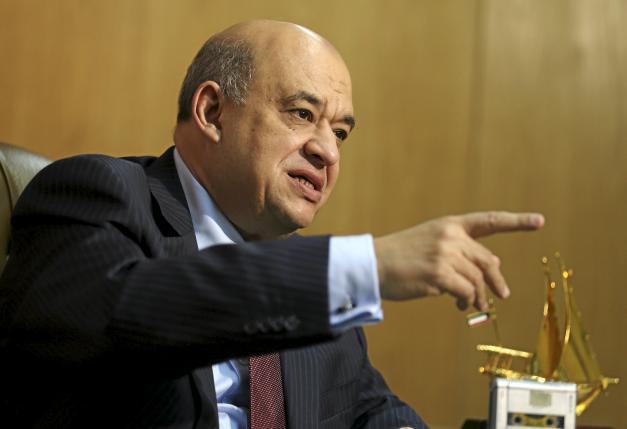
Egyptian Tourism Minister: Working with international tourism partners to restore success
The new Egyptian Minister of Tourism, His Excellency Yehia Rashed, today announced his plan – the ‘6×6 Tourism Impact Plan’ – to fundamentally enhance Egyptian tourism and to revive the fortunes of the critical tourism sector.
Minister Rashed’s ‘Tourism Impact Plan’ focuses on 6 main priorities to improve Egyptian tourism and is designed to deliver real and impactful results within 6 months. The six themes are:
- A New Partnership: Working with international tourism partners to restore success
- Bring the World to Egypt: Working in partnership with Egypt’s national carrier, EgyptAir, to develop new destinations, and to support charter and low cost airline companies in bringing more tourists to Egypt
- Innovation and Investment: Enhance Egypt’s tourism infrastructure by supporting investors and innovating with new ideas
- Raise the Bar: Meet the highest international standards through upgraded product and service levels at tourist facilities
- Attract International Investment: Working to bring foreign direct investment to Egyptian tourism
- A Future in Green Tourism: Develop the growing trend in Egyptian tourism of sustainable eco-friendly accommodation, transportation, and activities
Announcing the 6×6 Impact Plan, Minister Rashed commented:
“My one and only goal is to bring huge numbers of tourists back to Egypt. To do this we need concerted action and partnership with Egyptian and international tourism stakeholders. The 6×6 Tourism Impact Plan is all about action that brings together the priority areas of Egyptian tourism, providing support and enhancements as we move forward.
The commitment to see these 6 priority areas have an impact over a 6 month time frame is very ambitious. But I am also ambitious for our tourism sector. I want to see positive action and for that action to have an immediate impact. 6×6 allows us to focus our energies on the most important elements.
This is the start of an exciting time and opportunity for Egyptian tourism. This will return Egypt to being one of the most sought after places to visit in the world.”
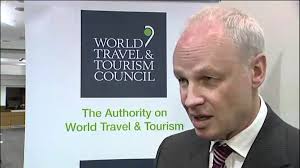
David Scowsill Opening Speech at the WTTC Global Summit 2016
This is a transcript of David Scowsill Opening Speech at the WTTC Global Summit 2016:
Secretary Pritzker, Your Excellencies, distinguished guests, ladies and gentlemen. Welcome to Dallas. And welcome back to the United States for the first time since we were in Las Vegas in 2011. That gathering was instrumental in providing the international perspective on the post 9/11 Travel & Tourism landscape in this country. The “lost decade” of economic growth. The visitors who didn’t visit. The jobs which weren’t created. The 600 billion dollars lost to the US economy in 10 years. The Global Summit in Vegas represented a tipping point. The culmination of years of effort by CEOs in this room, supported at the right time by global pressure to produce a big impact. This was public private sector cooperation at its best. Within 12 months, Brand USA became fully active and the National Travel & Tourism Strategy had been created. President Barack Obama signed the Executive Order, announcing new initiatives to significantly increase the numbers of visitors coming to the United States.
Since these changes, the US has received some $30bil extra in international tourist receipts. I remember watching his address. The tone was different. The words were different. He had got the message. He understood. What the President did not say is that the US is the world’s largest Travel & Tourism economy, contributing a total of 1.4 trillion dollars and 13.5 million jobs. It far outstrips the size of China, Germany, Japan and every single G20 country. The world needs a prosperous US Travel & Tourism sector, for it accounts for one in every five dollars created by our sector worldwide. And as the country came out of the worst recession since the Great Depression of the 1930s, the economic contribution from the additional visitors generated more jobs, more investment, and more visitor dollars. So we are back in the United States to explore how we look up beyond our usual operating horizons to Travel Beyond Boundaries. Another global financial crisis is on the horizon. Negative interest rates. Plunging commodity prices. Unimaginably low oil prices. The risk of sovereign debt defaults. Deflationary forces. Competitive monetary policy. The slow down in China.
But look how we can thrive on disruption. We gather here in Dallas to touch the foundation stone of the global low-cost airline industry. Less than 10 miles from here Southwest Airlines moved beyond tried and tested business models, and provided the blueprint for great low-cost travel. And new boundaries are being pushed with the rapid rise of the sharing economy. Social media. Digital disruption. Less than ten years after being founded, Airbnb is valued at 25 billion dollars – or about the same as Starwood and Intercontinental Hotels group combined – yet it doesn’t own a single hotel room. Uber is valued at around 60 billion dollars, even before it moves into deliveries – yet it does not own a single car. Both of these businesses are disrupting the status quo, driven by great product, technology, consumer need and convenience. In the realms of science and technology we reach out beyond any understanding of our ancestors, to embrace a new era of robotics and automation. We live in an ever-connected world, brought closer by technology, multi platform media, binding trade agreements and the sheer speed of travel.
That same connectivity sees us witnessing the migration of peoples, on a scale not seen for decades. Navigating our way through and beyond the complexities of mass migration, embracing the possibilities while acknowledging the concerns, will be the urgent task of our global leaders now and in the years ahead. And boundaries are being breached in new arenas of combat. In our data dependent world, new battlegrounds are being drawn up. Strategies on security and data protection are being redefined. Cyber terrorism is the new theatre of war. Yet even cyber terrorism is shaded by the dark random brutalities of physical terrorism: from Paris to Palmyra – from Cairo to California. We have to prevent an over-reaction from governments, who are wrestling with the question: “how can we keep our borders safe, while keeping those same borders open to travellers and tourists?” We addressed this topic yesterday in a Ministerial Dialogue with some of our Members, laying out a blueprint for how we can work together to stop the borders being closed. We call upon the world’s leaders to improve radically international intelligence and security agency cooperation. Many attacks are perpetrated by home grown terrorists. Closing our borders and jeopardising our freedom to travel is not the solution. Such political, social, and economic shifts undoubtedly give us enormous challenges, but they also offer up extraordinary opportunities.
To harness our industry to this changing world. To influence it. To define it. To break boundaries. For the world needs a thriving, prosperous Travel & Tourism sector. Globally, this sector contributes $7.2 trillion annually, almost 10% of the world’s GDP, and supports one in eleven of all jobs on the planet. We account for 6% of all exports and 4% of all investment. But beyond economic arguments, there is the human side. Travel and Tourism brings people together. It puts a smile on people’s faces. It alleviates poverty. It provides employment across all levels of society, and in some of the most remote places on earth. It broadens horizons and breaks boundaries. Travel & Tourism truly is a force for good in the world. So, what’s stopping us? What are the barriers to our ambition? Some of these boundaries are very familiar to WTTC: our fight for Freedom to Travel in a safe and secure environment.
Our mandate to ensure that taxation is applied intelligently. Our struggle for the right infrastructure. Our focus to get the best talent into our businesses. For these are critical issues, which drive our work to maximise the long-term sustainable growth of the sector. Our relationship with UNWTO is the best example of public and private sector partnership, speaking with ‘One Voice’ delivering consistent messages. Together with Secretary General Taleb Rifai, we have met with 82 Heads of State in the last four years, taking the message of the social and economic importance of our sector to the very people who make the decisions. Together we launched the Global Travel Association Coalition to expand our influence with government, creating a unified plan with IATA, ACI, ICAO, CLIA, WEF and PATA. This agenda prioritises action on the four issues of greatest importance to our sector: Visas and security. Infrastructure. Sustainability. People. Representing the private sector, WTTC is the global authority on Travel & Tourism. We communicate globally the critical issues for the industry at our Summits.
We are the voice of the industry in the media during times of crisis – reassuring consumers, calming stock markets, and providing historical perspective. More than at any other time, the world needs organisations such as WTTC to provide leadership. Ladies and gentlemen, if I had to focus our minds on just one issue it would be this: The combination of global terrorism and an international refugee crisis is creating an unprecedented threat. World leaders need to stand up together and to act now. And it is our role as Travel & Tourism leaders to make that happen. No individual government or company knows all the answers. But together we do. Together we will continue to travel beyond boundaries. Thank you
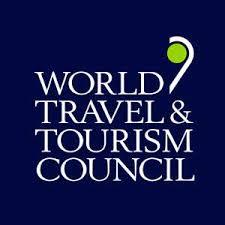
Closing speech: WTTC Global Summit in Dallas, President & CEO, David Scowsill,
In closing the WTTC Global Summit in Dallas, President & CEO, David Scowsill, called on the Travel & Tourism sector to show the leadership required to keep people travelling despite concerns over security and the movement of refugees.
“The boundaries which we are trying to break become the borders that others are trying to build,” he said. “Let’s go further than we have ever gone before in championing and resolving the big issues of our age. Let’s claim the leadership position.” Travel & Tourism accounts for almost 10% of world GDP and one in eleven of all jobs on the planet, making it a powerful contributor to the global economy. “I see a sector that is growing at a higher rate than world GDP. One that is creating jobs. And one that is committed to the stewardship of the world’s natural resources. In an uncertain world driven by conflict, fear, climate change and resource scarcity, it is our sector to which governments can look for economic certainty”, he said.
“Which other industry can be invited into the world’s great powerhouses and provide sought after advice in the fields of sustainability, innovation, job creation, and economic generation?” he asked.” “It is now the role of world leaders to step up to harness the opportunities of Travel & Tourism and for the leaders of our sector to embrace that opportunity.” “The key issue we have addressed is the implication for freedom to travel of the twin threats of terrorism and the movement displaced peoples. Global problems require a global response. That is why we welcome the challenge laid down by the US Government for the public and the private sectors to work together, to improve radically inter-agency cooperation and the sharing of information across the world.”
The WTTC Global Summit had seen contributions from over 60 people over the course of two days as Travel & Tourism leaders discussed the pressing issues affecting the sector today – notably safety & security, sustainability, and the influence of recent geopolitical shifts and technological developments. The 2016 WTTC Global Summit was hosted by Dallas CVB, with invaluable support from Brand USA, Dallas Fort Worth International Airport, Mexico Tourism Board, Sabre, Texas One, TravelTexas.com, United Airlines and the US Travel Association. Next year, the WTTC Global Summit will take place from 26-27 April 2017 in Bangkok, hosted by the Ministry of Tourism and Sports of Thailand and endorsed by the Royal Thai Government.

Don’t close borders in response to terrorism
“Don’t close borders in response to terrorism”, says WTTC CEO “Closing borders and jeopardising the freedom to travel is not the answer to the current security concerns.
World leaders need to stand together and act now, with the support of the Travel & Tourism sector.” That was the message from David Scowsill, President & CEO, World Travel & Tourism Council (WTTC) at the start of the organisation’s annual Global Summit, in Dallas, Texas.
Scowsill told the assembled private and public sector delegates that: “The combination of global terrorism and an international refugee crisis is creating an unprecedented threat, but closing our borders and jeopardising our freedom to travel is not the solution.
We have to prevent an overreaction from governments.” “We live in an ever-connected world, brought closer by technology, multi-platform media, binding trade agreements and the sheer speed of travel. That same connectivity sees us witnessing the migration of peoples, on a scale not seen for decades. Navigating our way through and beyond the complexities of mass migration, embracing the possibilities while acknowledging the concerns, will be the urgent task of our global leaders now and in the future”, he said. In calling on world leaders to “prevent an overreaction from governments” he said the critical question is to understand “how can we keep our borders safe, while keeping those same borders open to business travellers and tourists?”
He reminded delegates of the impact of the US border tightening after the 11 September 2001 attacks, which led to a ‘lost decade’ of tourism income that cost the United States some $600 billion. WTTC advocates improving international intelligence and security agency cooperation, better use of technology, and better communication as ways of combatting the problem. Such action will take global agreements and a commitment to sharing data – something which can only happen with concerted international effort. “World leaders need to stand up together and to act now. And it is our role as Travel & Tourism leaders to make that happen”, he said. The economic contribution of Travel & Tourism is clear. Globally, the Travel & Tourism sector contributes $7.2 trillion annually, almost 10% of the world’s GDP, and supports one in eleven of all jobs on the planet, an exceptionally resilient performance despite many challenges. Scowsill also highlighted how the sector is force for good in the world: “Travel and Tourism brings people together. It puts a smile on people’s faces. It alleviates poverty. It provides employment across all levels of society, and in some of the most remote places on earth. It broadens horizons and breaks boundaries.”
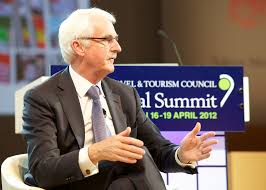
Gerald Lawless new Chairman of the World Travel & Tourism Council
The World Travel & Tourism Council (WTTC) is pleased to announce the election of Gerald Lawless as WTTC Chairman at the Councils Annual General Meeting on 6 April 2016 in Dallas, Texas.
Mr. Lawless, former Group Chief Executive Officer of Jumeirah Group and now Head of Tourism and Hospitality at Dubai Holding, is a leading figure in the world of tourism and hospitality. In his 18 years as CEO of Jumeirah Group, he spearheaded the growth of the hotel chain to one of the best-known luxury hospitality brands in the world, expanding the companys portfolio to 22 hotels in 11 destinations and establishing Burj Al Arab Jumeirah as the most luxurious hotel in the world.
Gerald has been a Member of the World Travel & Tourism Council since 2005, sitting on the Executive Committee since 2008, and as Vice Chairman since 2012.
Mr. Lawless will take over from Dr. Michael Frenzel, Chairman Emeritus TUI AG. The WTTC Chairman is elected for a term of two years.
Outgoing Chairman, Dr. Michael Frenzel said I am delighted to welcome Gerald as WTTC Chairman. Gerald has been an active Member of WTTC, responsible for bringing the Global Summit to Dubai in 2008 and serving on the Executive Committee and as a Vice Chairman. His commitment to WTTCs Mission will be invaluable, as the organization continues to drive recognition of Travel & Tourisms social and economic impact amongst governments around the world.
Gerald Lawless, Chairman, WTTC, said: Over the past 11 years, I have been privileged to be a member of the World Travel & Tourism Council. I believe strongly in the mission of the organization, which advocates the benefits of Travel & Tourism, not only to the global economy but also to society in general. Travel & Tourism is and will remain a force for good. It deserves a lot more recognition from governments worldwide.
WTTCs latest data shows that the sector accounts for 9.8% of the worlds GDP, contributing over USD$ 7.2 trillion. Last year Travel & Tourism added 7.2 million jobs to the global economy, supporting a total of 284 million jobs around the world.
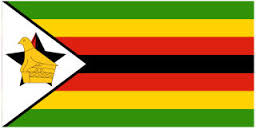
Zimbabwe Tourism Minister Mzembi on a U. S. Diplomatic Charm Offensive
Relations between the United States and Following Zimbabwe nomination and the Southern African Development Community’s endorsement of the candidature of Dr Walter Mzembi to the position of Secretary General of the United Nations World Tourism Organization (UNWTO) which falls vacant in the last quarter of 2017, the mercurial Engineer, has is in the United States of America on a diplomatic charm offensive where he is reported to be making significant inroads into the Washington power matrix.
On Monday 4 April 2016, accompanied by the Zimbabwe Ambassador to Washington DC Amon Mutembwa and Senior Officials, he paid a courtesy call on the US State Department where he met Todd Haskell, Deputy Assistant Secretary of State for African Affairs and other Senior Officials in the Department.
According to the programme seen by this paper Mzembi later on addressed a highly subscribed Corporate Council on Africa (CCA) meeting on “Destination Africa: The Future of African Tourism”. As guest speaker he met a conglomerate of US private sector, business and public policy experts on the tourism sector.
Corporate Council on Africa, a Washington Think Tank brings together public and private sectors in the USA and seeks to promote business and investment between the United States and Africa. CCA is the premier American organization devoted to US-Africa business relations and includes as its members, more than 180 companies, which represent nearly 85 percent of total US private and public sector investments in Africa. CCA’s members range from America’s smallest to the largest corporations. It represents a diverse pool of industries from Africa’s most promising sectors, including agribusiness, capacity building, energy, finance, health, ICT, infrastructure and security. The Corporate Council on Africa is a key resource mobiliser for conducting successful business in Africa. It works closely with governments, multilateral groups and businesses to improve Africa’s trade and investment climate and to raise the profile of Africa in the U.S. business community.
Most importantly, recently, CCA acquired the Africa Travel Association (ATA), a major organization that deals with promotion of tourism relationships between Africa and US. Mzembi is a three-time past President of the then New York based Association. The CCA President and Chief Executive, Mr Stephen Hayes is understood to be consulting Mzembi on the future structure of ATA under its new CCA configuration. According to the source close to the deliberations, Mzembi impressed the CCA capacity audience with several companies having offered to work with him in exploiting opportunities in Africa. He spoke convincingly on the need to configure CCA-ATA in a manner that responds to the tourism growth trajectory and aspirations of African countries. Minister suggested the consummation of a structure that dovetails into African Union Agenda 2063 with a recommendation on the devolution of emerging CCA-ATA structure into an African Secretariat based in Addis Ababa, Ethiopia. Currently, Africa’s global tourism market share oscillates from three to five percent, and Mzembi shared his vision for a double digit market share for African tourism by the year 2030 on the back of a cocktail of proposals he has advanced to the AU in his capacity as the UNWTO Regional Commission for Africa Chairperson.
Later on in the week, Mzembi headed for Dallas Texas where he is a participant and an invited guest to the WTTC 16th Global Summit. He participated in a Ministerial Dialogue with other Ministers around the globe and Chief Executive Officers of leading hospitality brands and other service providers. The Minister will further participate in Public and Private Business Policy discussions from an international, regional and national perspective. He is expected to address the Zimbabwe Diaspora community in Dallas Texas who have constituted themselves into a Diaspora Chamber of Commerce and have expressed interest to promote Zimbabwe as Honourary Consuls General. Later, the Minister will round off his visit in New York where he will address a meeting of diplomats accredited to the United Nations where he will share his vision on tourism development.
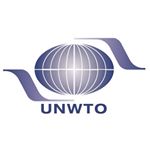
UNWTO – a decade building capacity in tourism policy in Asia/Pacific
Under the title ‘Human Capital Development in Tourism’, the UNWTO Asia/Pacific Executive Training Programme on Tourism Policy and Strategy has gathered policy makers and tourism executives in Seoul, Republic of Korea, to enhance skills and understanding on the latest trends in tourism management. The initiative, organized by UNWTO and sponsored by the Ministry of Culture, Sports and Tourism of the Republic of Korea, has reached a decade in this last edition, as the first Training Programme on Tourism Policy and Strategy in the Asia/Pacific region launched in 2006.
Group discussions, case studies and a series of lectures integrated the 4-day training programme aimed at building skills for public sector executives in tourism policy. The 52 participants coming from 21 different countries in Asia and the Pacific also had the opportunity to share their experiences and best practices in fields such as tourism strategic planning and implementation.
The topic for this year programme, ‘Human Capital Development in Tourism’, responds to the growing need of destinations in Asia and in the Pacific to enhance the quality of services, develop and retain human resources and improve the skills of tourism professionals as the sector gains increased relevance in the region.
“UNWTO has a strong commitment to talent development and capacity building. This training programme is probably one of the best examples of the efforts of the Organization in this field”, said UNWTO Secretary General, Taleb Rifai, opening the event.
“This is also a perfect example of how countries such as the Republic of Korea can contribute to tourism development. We are very thankful to the Ministry of Culture, Sports and Tourism for the longstanding support provided to this programme. We have run this programme for a decade now, and the support that the Republic of Korea has given us has contributed greatly to its success, making a real difference to the many countries from around the world that throughout this decade have joined the programme” he added.
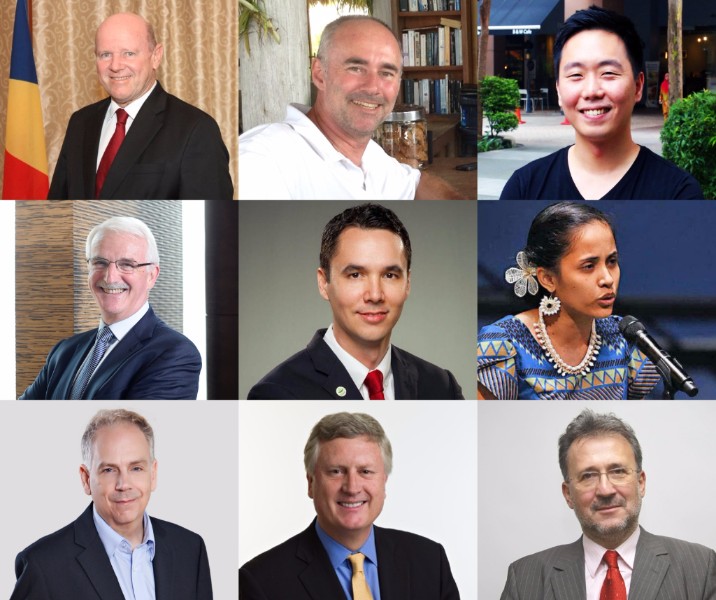
Ministerial Debate with the Private Sector on Pacific Island Tourism
The Pacific Asia Travel Association (PATA), in partnership with the World Tourism Organization (UNWTO), will hold the PATA/UNWTO Ministerial Debate on Pacific Island Tourism in Guam, USA on May 21, 2016. The event, generously hosted by the Guam Visitors Bureau (GVB), will be held at the Dusit Thani Guam Resort.
During the high-level debate, representatives from both the public and private sector will discuss how they can better align their actions towards a common set of goals and what an ideal island destination would be.
The first panel discussion on ‘Merging Motivations’ examines the different motivations and goals for the government and private sector. Speakers will analyse the areas where they overlap and discuss how to better align them to create a better pathway for growth.
The second panel session, ‘Cloud Nine – The Ideal Island Economy’, will delve into the notion of an ideal island economy, as the choices that shape the complete visitor economy of an island have a direct environmental and cultural impact upon the destination.
PATA CEO Mario Hardy said, “Preliminary figures from PATA indicate that 38 destinations in the Asia Pacific region welcomed 537.8 million international visitor arrivals in 2015 and that number is expected to reach more than 650 million by 2020. While this growth is surely impressive, it becomes imperative that both the public and private sector work together to ensure sustainable and responsible growth of the travel and tourism industry. The UNWTO/PATA Ministerial Debate is the perfect platform for bringing together both parties to work towards these goals.”
UNWTO Secretary-General, Taleb Rifai said, “Islands are home to some of the richest marine and land biodiversity on earth. Because of this, they are also a top destination for millions of tourists each year. The special geographical situation of islands makes them unique, but at the same time this poses a number of challenges for them including sustainability, climate change, air connectivity and positioning islands as top choice destinations in the minds of tourists. This Ministerial Debate will serve as an important preparatory exercise for the International Year of Sustainable Tourism for Development, 2017 adopted by the United Nations General Assembly”.
“This is the first time PATA and the United Nations World Tourism Organization are coming together to host this historic meeting in the Pacific. The discussion of important issues, such as global warming and sustainable tourism, are very relevant to the region as well as the global tourism industry,” said GVB Executive Director Nathan Denight. “Guam has been a regional hub in the Pacific for hundreds of years, and in this modern age, we are America in Asia and the perfect destination for high level meetings. We look forward to welcoming all the delegates and guest speakers to our island paradise.”
PATA and the UNWTO are especially honoured to have Marshallese poet, writer, artist and journalist Kathy Jetnil-Kijiner officially open the debate. Her poetry focuses on raising awareness on issues and threats faced by the people of the Marshall Islands. She has performed at the opening ceremony of the UN Climate Summit 2014 in New York and the 2015 United Nations Climate Change Conference (COP 21) in Paris.
Other confirmed speakers include Honourable Minister Alain St-Ange, Minister of Tourism and Culture, Seychelles; Andrew Dixon, Owner, Nikoi and Cempedak Islands; Derek Toh, Founder & CEO, WOBB; Gerald Lawless, Head of Tourism and Hospitality, Dubai Holding; Jon Nathan Denight, General Manager, Guam Visitors Bureau; Mark Schwab, CEO, Star Alliance; Morris Sim, Co-Founder & CEO, Circos Brand Karma; and Zoltan Somogyi, Executive Director for Programme and Coordination at the World Tourism Organization (UNWTO).
Delegates registering for the conference during the PATA Annual Summit 2016, hosted by GVB, enjoy complimentary access to the event. For more information, or to register for the event, please visit www.PATA.org/PAS-2016.
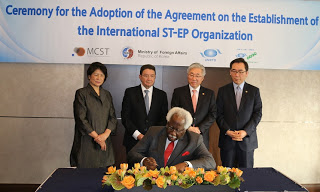
ST-EP International Organization: Zambia ambassador was at the signing ceremony
In 2013, the United Nations World Tourism Organization (UNTWO) General Assembly unanimously approved the proposal that the UNWTO ST-EP (Sustainable Tourism for Eliminating Poverty) Foundation to become an independent international organization headquartered in Seoul, Korea. The project was endorsed by the 156 UNWTO Member States including Zambia.
Ambassador Mumba Kapumpa, SC represented Zambia at the signing ceremony of the adoption of the agreement on the establishment of the ST-EP International Organization. The ceremony took place at the Lotte Hotel in Seoul on Monday, March 28, 2016. The ambassador was accompanied by First Secretary for Tourism, Nthemba Kamanga-Minja. Over 25 countries were represented at the ceremony.
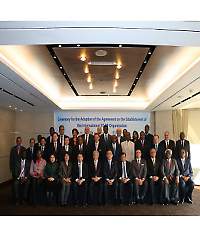
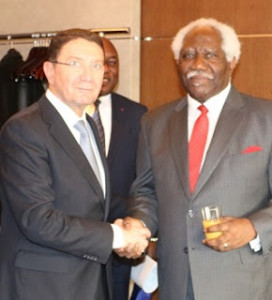 Following the resolutions, the UNWTO circulated the draft agreement on the establishment of the ST-EP International Organization prepared by the Government of Korea in December 2015 to be reviewed by Member States. Zambia has since then ratified the decision to join the new ST-EP Organization as a founding member.
Following the resolutions, the UNWTO circulated the draft agreement on the establishment of the ST-EP International Organization prepared by the Government of Korea in December 2015 to be reviewed by Member States. Zambia has since then ratified the decision to join the new ST-EP Organization as a founding member.
The ST-EP Organization will continue to encourage and advocate poverty alleviation through sustainable tourism development projects, targeting the most disadvantaged groups in society.
As of December 2013, 107 ST-EP projects have been approved for implantation in 40 countries. These projects include training of local tour guides and hotel employees; facilitating the involvement of local people in tourism development around natural and heritage sites; establishing business linkages between tourism enterprises; and providing business and financial services to small-, medium-, and community-based tourism enterprises.
In his congratulatory speech, Secretary General for the UNWTO, Dr. Taleb Rifai, said Korea is a success story by all means, and the establishment of the organization’s head office in Seoul is seen as another meaningful step for Korea’s contribution towards sustainable development.
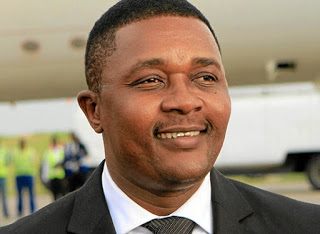
Zimbabwe moving to secure the next UNWTO Secretary General position
Zimbabwe’s minister of Tourism H.E. Walter Mzembi is trying to secure his move to become the next Secretary General of the UNWTO (United Nation World Tourism Organization)
The 7th meeting of the Southern African Development Community (SADC) of ministers responsible for Tourism was held in Gaborone, Botswana next week, March 14-15, 2016.
The Council endorsed the candidature and nomination of Hon. Walter Mzembi by the Government of Zimbabwe to the position of Secretary General of the United Nations World Tourism Organization (UNWTO), the SADC Council of Ministers said in a statement on Wednesday
Earlier this month at the ITB trade show in Berlin the replacement of Taleb Rifai , the current UNWTO Secretary General was discussed in many forums.
European, Asian and South American Ministers are yet to make up their minds on who they propose as the next secretary general.
Politically Zimbabwe has been controversial in many countries. Does this move indicate drastic changes in Zimbabwe’s policies?
Could Zimbabwe lead the United Nation’s Tourism body and keep in place the unity the UNWTO enjoyed thanks to the tireless efforts Taleb Rifai brought to the UN agency? .
This may be a question to ask for many that will attend the upcoming WTTC Global Summit in Dallas, Texas next month.
With Minister Mzembi expected to attend the WTTC summit in the United States, his move may be on the hidden agenda for leaders of the private tourism sector to discuss.
